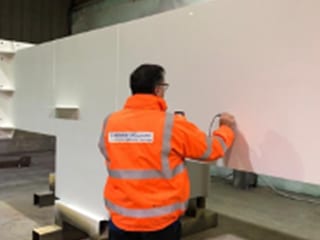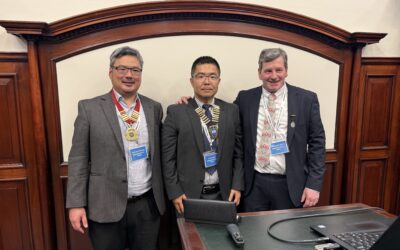New Training Course – Hydrocarbon Passive Fire Protection Inspector
In 2019 ICorr and the Hydrocarbon Passive Fire Protection Network (PFPNet) signed a collaborative agreement to develop an industry leading training course specifically aimed at Inspectors involved with the installation of hydrocarbon passive fire protection materials. Initially the course will be targeted at epoxy intumescent materials but will be quickly followed with further training relative to cement-based fire protection products.
PFPNet was chosen by ICorr as it is an independent industry group whose membership comprises a number of leading companies in the oil, gas and hydrocarbon processing industries, from owners to engineers, leading construction contractors, regulatory authorities, manufacturers of passive fire protection and contractors who apply these materials. The world leading expertise available through the PFPNet membership provided a high level of confidence for ICorr in assigning the development of this important training course them.
Passive fire protection is a critical item in personnel safety, it is also there to protect valuable assets against fire and by preventing escalation of an incident. However, to work correctly and maintain its integrity over the lifetime of an asset means it must be installed to the highest standards available, thereby making correct inspection of installation core to its success.
The hydrocarbon passive fire protection training course will, as indicated, be aimed at Inspectors responsible for installation of products, but it could equally benefit engineers and others who wish to understand the reason why passive fire protection is important, and the processes involved in its installation.
Key areas of the course
content include:
• Introduction to the types of passive fire protection (PFP) used and why it is important
• Types of structure that are protected by PFP
• Qualification and approval of PFP materials and the importance of ensuring compliance with project specification and regulatory requirements
• Installation of products from surface preparation through to final finish coat
• The impact of incorrect installation and defects, and how this affects both fire integrity and long-term performance
• Installation planning, importance of Quality Control at all stages and the responsibilities of the parties involved
• The role of the Inspector in ensuring a successful installation
The course is a full five-day programme and on the fifth day attendees will be required to complete an end of course examination, and their success will depend upon achieving sufficient marks against a defined set of questions.
ICorr and PFPNet believe that this training course will set a new standard in the industry for PFP inspection, and with cooperation of their respective members, particularly asset owners, will be looking to establish the course as the benchmark for inspector and engineer training.




